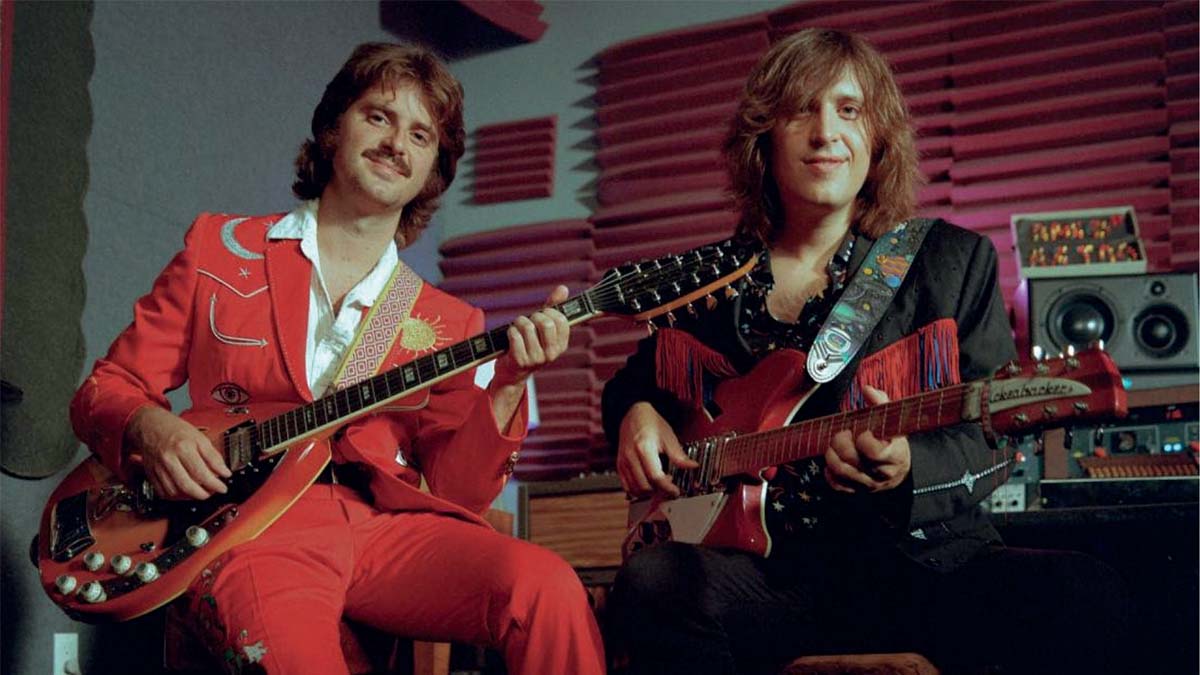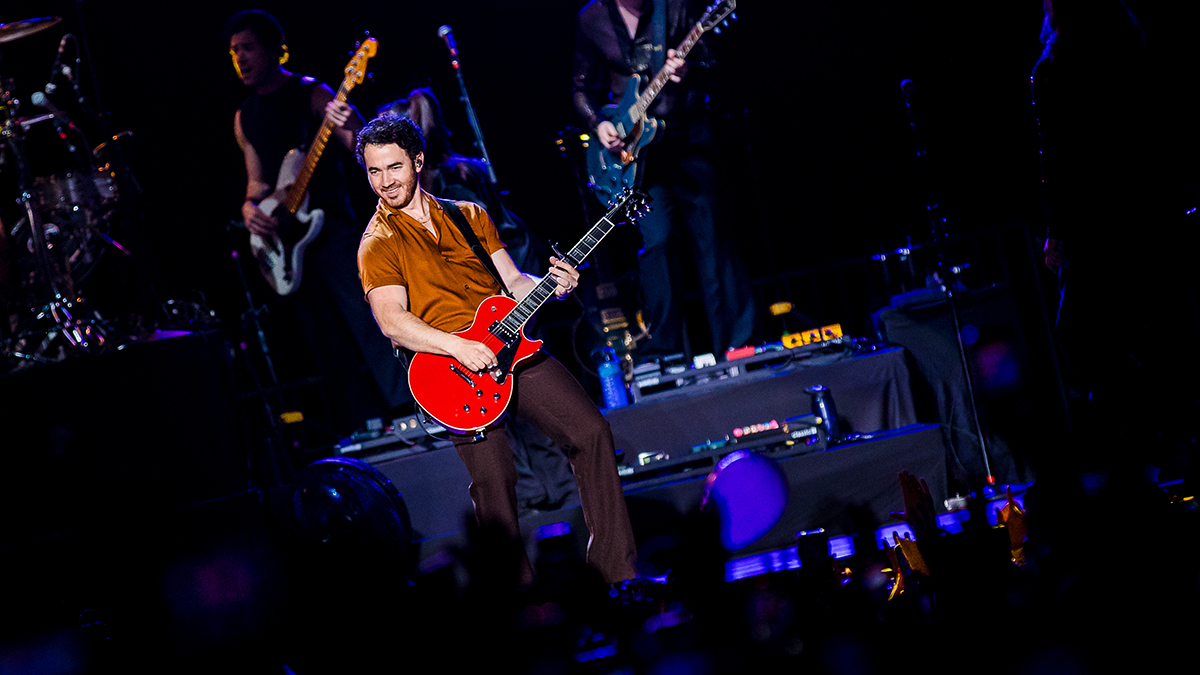Hearty Har's Tyler and Shane Fogerty on learning from their father, starting their own studio and experimenting with sounds
Sons of Creedence Clearwater Revival's John Fogerty, the brothers are writing the next chapter in the family's storied musical history

Guitars are an essential nutrient when it comes to LA rockers Hearty Har. Whether it’s the Byrds-like 12-string guitar twinges on Radio Man ’56 or the spaghetti western instrumental Canyon of the Banshee, the instrument plays a critical role in the sound on the band’s debut, Radio Astro, which was released in February.
The band is led by Tyler and Shane Fogerty, sons of Creedence Clearwater Revival frontman John Fogerty. While their father was mostly hands-off in their musical learning, he occasionally gave them pointers on the differences between guitars and how to play riffs, including AC/DC’s Back in Black.
“That was a big moment of joy for him, when we finally wanted to learn how to rock instead of just skateboarding and other stuff,” Tyler says.
“He wasn’t hands-on in trying to influence what we were going to listen to or play. We discovered that stuff on our own. But, when we were kids, we’d ask, ‘What sound is that?’ And he’d tell us, ‘That’s a Strat and that’s a Tele,’ or, ‘That’s a delay’ – because he’s obsessed with guitars, obviously. We took that into our own thing and experimented to find out for ourselves.”
Initial attempts to record an album stalled. “We weren’t happy with letting other people inform how our record sounded; we had very specific ideas, and that took precedence over anything else,” Tyler says.
That inspired the brothers to start their own studio, where they were free to experiment and dial in the sounds they heard in their heads. “We got new band members and we learned how to be engineers,” Shane says. “We just love to experiment with sounds and try new things.”
The result is an album rich in a variety of influences, old and new. Canyon of the Banshee goes for an Ennio Morricone-meets-David Gilmour, Pink Floyd-y psychedelic sound. Tyler recorded with a Rickenbacker 370, ’66 Strat, Hofner and six- and 12-string Vox Starstream guitars.
All the latest guitar news, interviews, lessons, reviews, deals and more, direct to your inbox!
“Just being in here in a studio, you’re driving the spaceship and you’re kind of attuning,” Shane explains. “Like, writing a song – it comes seemingly out of nowhere, but you have to be turning your antenna out in order to receive it.”
The Fogerty brothers feel the band works well because of the familial trust they have in each other. Says Tyler, “I think music is a tricky thing, and having somebody in your family in your band can be a great thing if you really trust him. It’s definitely nice to have a strong core of this band.”
- Radio Astro is out now via BMG.
Josh is a freelance journalist who has spent the past dozen or so years interviewing musicians for a variety of publications, including Guitar World, GRAMMY.com, SPIN, Chicago Sun-Times, MTV News, Rolling Stone and American Songwriter. He credits his father for getting him into music. He's been interested in discovering new bands ever since his father gave him a list of artists to look into. A favorite story his father told him is when he skipped a high school track meet to see Jimi Hendrix in concert. For his part, seeing one of his favorite guitarists – Mike Campbell – feet away from him during a Tom Petty and the Heartbreakers concert is a special moment he’ll always cherish.

